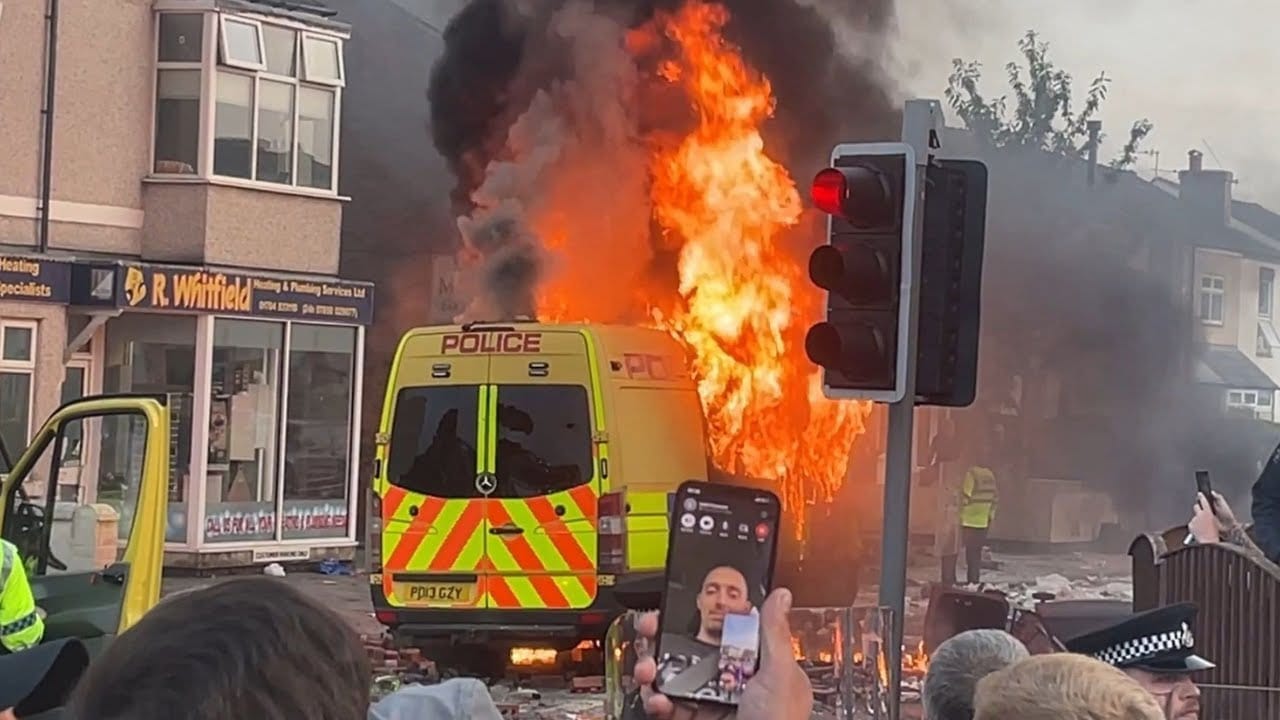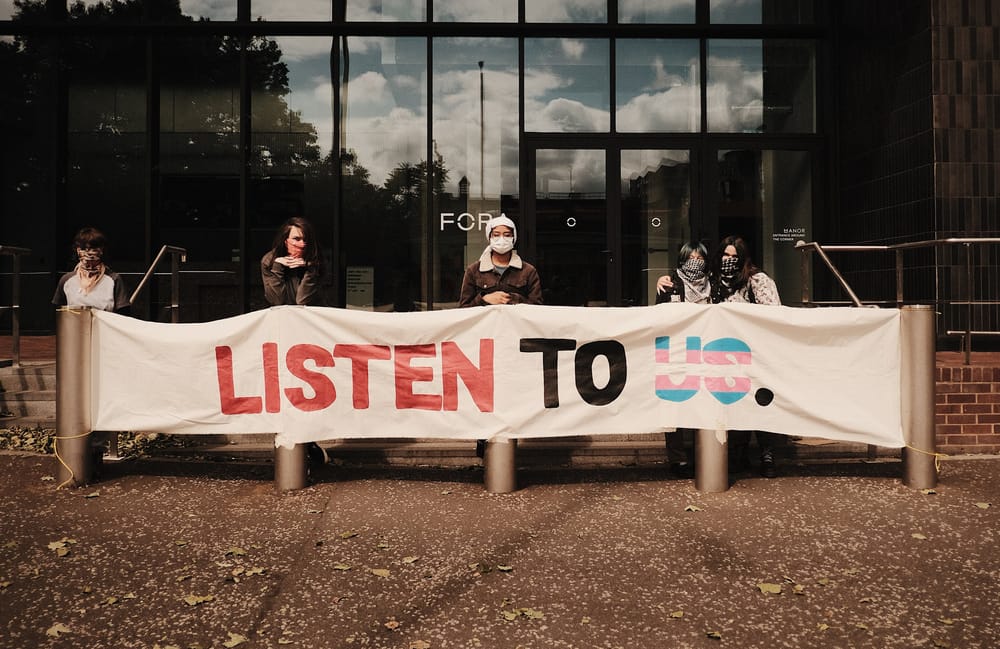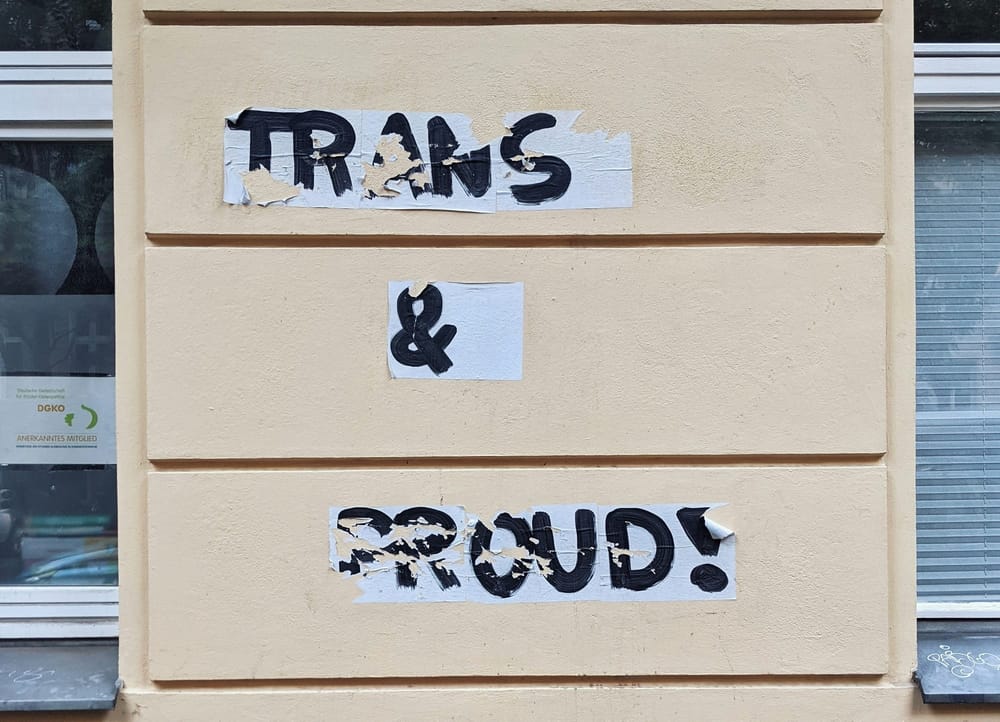The time for a Jewish anti-fascist renaissance is now
Islamophobia and fearmongering by communal leaders must be replaced with cross-community anti-fascist organising.

The obvious thing to say is that it could be us. Homes and shops are being vandalised, places of worship are under siege, individuals are being attacked for their ethnic and religious appearance. Jews are familiar with all of these scenarios, either first-hand or from the stories of our parents and grandparents. The history of racist violence and the constant threat of its reemergence is a key part of our religious education. Lots of those responsible — potentially including those reported to be amassing in North Finchley tonight — would like it to become us: the twenty-first century far-right displays the same gestures and insignia as its antecedents, sees its “concerns” given space in the same newspapers, posts the same cartoons. It is motivated, still, by outrage at what it considers “un-British”, a category Jews have been slipped into and out of when it suits those in power.
The problem with "it could be us” is twofold. First, it distracts from the primary targets of England and Northern Ireland’s current far-right violence, who are asylum seekers and Muslims. The fascist mobs rioting this week have their closest analogues in the anti-immigrant racism of the 1970s and ’80s, and as people of colour make safety plans and travel in groups, the murders of people like Altab Ali, Tosir Ali, and Kenneth Singh should remind us that this isn’t happening for the first time. Second, “it could be us” fails to acknowledge the circumstances which make Jewish solidarity with the victims of the rioting particularly urgent right now — namely, attempts by some modern far-right groups to use the cause of Jewish safety to legitimise themselves.
Far-right poster boy Tommy Robinson is a case in point. Despite his followers’ affinity for Nazi salutes, he has made a shtick of promoting himself as a friend of the Jews in recent years, from visits to Israel to interviews with British Jewish newspapers where he talks about antisemitism with brimming eyes. This phenomenon existed before 7 October 2023, but the Hamas attacks of that day, the Israeli bombardment since, and Britain’s responses to both have given it new soil in which to grow. Far-right graffiti documented by former British parliamentary candidate Faiza Shaheen that month condemned “Hamas Palestinian terrorist cowards” as well as demanding “death to Muslims”. Israeli flags are increasingly commonplace at far-right rallies. Robinson himself has lapped up the increased opportunities to denounce others for “Jew-hatred” and publicise his support for Campaign Against Antisemitism (CAA) demonstrations, to retweet Jewish accounts praising him for his support. On Armistice Day last year, he was among the fascists who mobilised in London to counter the pro-Palestine march.
It shouldn’t be hard for anyone to see that Robinson and his supporters tell the story the wrong way round. They’re not outraged by “Islamism” because they fear for Jews; they’re attracted to Zionism because they see Israel as a blueprint for their war against Islam. In Robinson’s words, if Israel loses, Europe is next. Writing in The Lead this week, Em Hilton described the far-right looking to Israel as an ethnonationalist ideal, and one can certainly compare the images of “proud British” rioters attacking a mosque in Southport with those of Israeli forces storming Al-Aqsa and see a process of mutual inspiration. The conspiracy theory that Israel is creating the riots in Britain overcomplicates the fact that those engaged in right-wing aggression around the world encourage one another.
Far-right philosemites globally continue with their narrative anyway, in part because they trust it works. In Britain they have, after all, copied it from some of the country’s highest officials. Anti-migrant and anti-Muslim rhetoric have been standard in those quarters for years, but since 7 October that rhetoric has been increasingly reframed around the threat that the pro-Palestine movement supposedly represents to Jews. As my colleague Taj Ali writes in Hyphen, “Ever since hundreds of thousands of peaceful protestors — Muslim, those of other faiths and none — began to march in solidarity with the people of Gaza, a panic has been whipped up about ‘Islamists’ taking over the UK.”
Suella Braverman, while Home Secretary, labelled pro-Palestine protesters “hate marchers” and tried to get the marches banned outright, stoking tensions that led to the aforementioned far-right riot in Westminster and her resignation. Her replacement, James Cleverly, spoke of protesters with “really evil intent”; Michael Gove accused them of standing “side-by-side with those who are promoting hate”. Who can blame the far-right for taking up the chance this kind of talk offers them to characterise themselves as the anti-hate contingent?
What’s most outrageous in this is not, ultimately, that the far-right are opportunists or politicians chauvinistic, but that some Jewish communal institutions have lent them credibility by engaging in equally hyperbolic rhetoric about pro-Palestine protests. In April, the Board of Deputies was demanding tighter policing on the London marches, which it accused of “stirring up racial hatred”, and again reiterating the idea that those marches made central London inhospitable to Jews. The CAA march Robinson tried to attend was called on the basis of pro-Palestine demos rendering the city a “no-go zone” for Jews, too — despite the large and visible Jewish bloc who’ve been there every time.
There was a serious rise in antisemitic incidents after 7 October, and antisemitic attacks should obviously be met with the same anger as any now being carried out by the far-right. Faced with this latest rioting, though, the difference in intensity of both the violence and the language of politicians can hardly be overemphasised. Hundreds of thousands of attendees at pro-Palestine protests which resulted in 153 arrests in over two months were labelled “hate marchers”, while the much smaller groups of fascists who have managed to desecrate graves, attack hotels housing asylum seekers, and torch libraries in a matter of days, leading to 400 arrests, are people with “legitimate concerns”, or at worst, “thugs”.
The grimmest rhetoric from Britain’s Jewish public figures and in communal papers has been not only inflammatory but openly Islamophobic. Some shocking cases were documented by journalists Peter Oborne and Imran Mulla back in October: Jewish News editor Richard Ferrer writing in the Daily Express that the Hamas attacks were the product of “plain and simple historic Islamic bloodlust” (“Islamic” changed to “Islamist” only after a backlash); Jewish Chronicle (JC) editor Jake Wallis Simons claiming that “many Muslims are brainwashed” by “a death cult that sacrilises bloodshed”; Douglas Murray arguing in the JC that the murders by Hamas were somehow more evil than those committed by SS death squads. This issue, too, is not confined to the period since October 2023: a 2019 JC article by Melanie Philips called the entire concept of Islamophobia “bogus” and “profoundly anti-Jew”. Em Hilton writes that "the Jewish press is publishing almost weekly diatribes about the ‘threats of Islamism’, fostering prejudice that borrows extensively from antisemitic tropes.”
The Board of Deputies and the Community Security Trust have condemned these latest attacks on Britain’s Muslim and migrant communities, and the CAA banned Tommy Robinson from the march he meant to attend last year. Still, Jewish establishment institutions’ role in the demonisation of the pro-Palestine movement in particular and Muslims in general cannot be ignored. There must be a reckoning: if Jewish leaders continue to insist that all pro-Palestine activism and criticism of Israel is racism, racists will keep trying to use support for Israel to launder their reputations. That goes for the ones in parliament and the ones on the streets. So what should those of us who want to contest this narrative do?
There are, I think, two ways out of this hellscape, and they have to happen together. The first and most urgent is community defence and anti-fascist organising. The violence of which the far-right is capable is obvious, and safety paramount. Times of distress like these are also times for people from diverse communities to come together and aid one another with resources and visible support, and for new ties to be built after the damage intercommunal relationships have suffered recently: concern for community infrastructure and security crosses racial and religious lines. The other is a reckoning with the context of the riots and far-right radicalisation more broadly. The misinformation campaign in the wake of the murder of three little girls in Southport last month is the culmination of years of Islamophobic and anti-migrant rhetoric given respectability by mainstream politicians, and also coincides with decades of neoliberal policies which have fed disillusionment and anger. We need a politics capable of offering anger a vastly different direction — one that concerns itself with building up instead of breaking down, with replacing division with collective strength, so that fascists know their intimidation will never be welcome.
Jews have a proud history of involvement in both these forms of organising. Jews have beaten fascists and fascist ideas on the street, in the town hall, and at the ballot box, and inspiration from all that history is going to be necessary in the coming months. It is possible to create a society that treats Islamophobia, white nationalism, and antisemitism as equally grim symptoms of the same sickness, which they are — a society in which nobody has to be taught to fear the sound of breaking glass. ▼
Francesca Newton is an editor at Vashti.
There’s no corporation or big advertisers behind Vashti – we're a workers' cooperative and rely on small donations to keep running. Support our journalism to help break the consensus.
To donate once, click here. To donate monthly, click here.
Author

Francesca Newton is assistant editor at Tribune and an editor at Vashti. She currently lives in Melbourne.
Sign up for The Pickle and New, From Vashti.
Stay up to date with Vashti.



